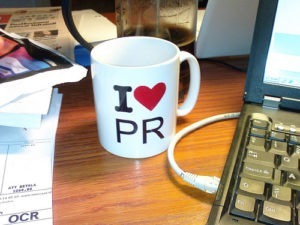Does the PR Industry Need to Do Some PR for Itself?
Posted: December 21, 2012 at 10:25 P.M.
PR practitioners may have a new crisis on their hands – the value of their job.

A survey by Adobe and Edelman Berland found people rate teachers, scientists, bankers and politicians as the most valuable professions. Advertising/marketing jobs are found to be the least valuable, tied with the occupations of actors and dancers.
Unfortunately, the disappointing results of the survey continue for people in the public relations industry. According to a report from Rupal Parekh for Advertising Age, “There was only one profession that ranked lower in the [Adobe and Edelman Berland] survey, and even that one is just a part of the marketing ecosystem: PR professionals. Only 11 percent said PR is a valuable job.”
The study polled 1,000 people from the United States, China and Japan. Of the people included, 75 percent were consumers and a quarter were leaders in the marketing industry.
What is even more surprising, of the marketers polled, only 35 percent consider their job as valuable.
Seems like the PR industry may need to do some PR – not just for the public, but for itself, too.
Carol Cookerly, president of Cookerly Public Relations, disagrees with the survey’s findings, stating many PR professionals love their work, and she believes the future of the industry is good.
“I think the business will continue to attract bright, capable professionals who are willing to break down silos and work across departments to develop comprehensive, measurable communications programs,” Cookerly said. “Our actions as ethical professionals – particularly as we enter an era where anyone and everyone can be a spokesperson – will do more to elevate our profession than a clever campaign.”
Many people believe the work developed by PR people is simply spinning the truth, with 53 percent claiming that “most marketing is a bunch of B.S.”
Mark Grimm, owner of Mark Grimm Communications, believes PR professionals have a responsibility to change the public’s perception of the industry.
“It’s up to the PR person to build positive relationships with the public and media,” Grimm said. “You don’t build positive relationships by being less than truthful. PR people should behave well by not emphasizing the good or the bad, and by not spinning or changing the facts.”
In order to shift the beliefs of the public, PR professionals must start with their first line of communication: reporters.
“The job of a PR person is to get good publicity for their client but also help reporters with what they have to do,” Grimm said. “Understand the reporter’s challenge in the competitive market; make their job easier to cover the information.”
Amanda Vega, owner of Amanda Vega Consulting, also believes that PR practitioners must start shifting the public’s perception by building positive relationships with those who disburse our work to the public.
“The profession has become so diluted that most newbies send brash emails to reporters without ever looking at anything they write, and that practice has made the rest of us look bad,” Vega said. “It’s time to go back to the hard work: research of stories, dociers of the journalists, true story creation for the clients and things like desk side pitching.”
PR practitioners must also use their key tool — creativity — to develop a case for their profession in the business sector.
“I think the lack of value in the PR space is that there isn’t a direct ROI, in most cases, for the hits that press brings to a company,” Vega said. “If we want a better ‘brand’ with regard to the profession, then more of us have to create case studies showing value of our services to client’s bottom lines.”
The increase and changes in communication tools have also impacted the role PR has in business and media, something Cookerly believes practitioners should pay attention to as well.
“New technology, social media and the accelerating news cycle have changed how public relations is practiced. Our roles in marketing, advertising, social networking and customer relations are growing, and it is increasingly clear that public relations is one organism in the business ecosystem. Our success both depends on and facilitates the success of a business or organization as a whole,” Cookerly said.
Although the exact definition of PR is subjective, it is up to those in the industry to define public relations by their actions in order to change the public’s perception. By building relationships with reporters, practicing ethical behavior and better evaluating ROI for clients, PR can establish itself as not only a valuable profession, but also an imperative one.


